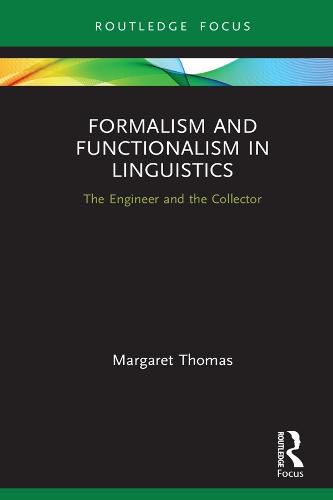Readings Newsletter
Become a Readings Member to make your shopping experience even easier.
Sign in or sign up for free!
You’re not far away from qualifying for FREE standard shipping within Australia
You’ve qualified for FREE standard shipping within Australia
The cart is loading…






This volume is a concise introduction to the lively ongoing debate between formalist and functionalist approaches to the study of language. The book grounds its comparisons between the two in both historical and contemporary contexts where, broadly speaking, formalists’ focus on structural relationships and idealized linguistic data contrasts with functionalists’ commitment to analyzing real language used as a communicative tool. The book highlights key sub-varieties, proponents, and critiques of each respective approach. It concludes by comparing formalist versus functionalist contributions in three domains of linguistic research: in the analysis of specific grammatical constructions; in the study of language acquisition; and in interdisciplinary research on the origins of language. Taken together, the volume opens insight into an important tension in linguistic theory, and provides students and scholars with a more nuanced understanding of the structure of the discipline of modern linguistics.
$9.00 standard shipping within Australia
FREE standard shipping within Australia for orders over $100.00
Express & International shipping calculated at checkout
This volume is a concise introduction to the lively ongoing debate between formalist and functionalist approaches to the study of language. The book grounds its comparisons between the two in both historical and contemporary contexts where, broadly speaking, formalists’ focus on structural relationships and idealized linguistic data contrasts with functionalists’ commitment to analyzing real language used as a communicative tool. The book highlights key sub-varieties, proponents, and critiques of each respective approach. It concludes by comparing formalist versus functionalist contributions in three domains of linguistic research: in the analysis of specific grammatical constructions; in the study of language acquisition; and in interdisciplinary research on the origins of language. Taken together, the volume opens insight into an important tension in linguistic theory, and provides students and scholars with a more nuanced understanding of the structure of the discipline of modern linguistics.